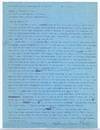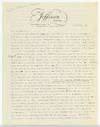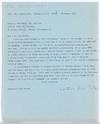Carousel content with 1 slides.
A carousel is a rotating set of images, rotation stops on keyboard focus on carousel tab controls or hovering the mouse pointer over images. Use the tabs or the previous and next buttons to change the displayed slide.
-
 Slide 1:
Slide 1:
-
 Slide 2: no title
Slide 2: no title -
 Slide 3: no title
Slide 3: no title -
 Slide 4: no title
Slide 4: no title -
 Slide 5: no title
Slide 5: no title -
 Slide 6: no title
Slide 6: no title -
 Slide 7: no title
Slide 7: no title -
 Slide 8: no title
Slide 8: no title -
 Slide 9: no title
Slide 9: no title -
 Slide 10: no title
Slide 10: no title -
 Slide 11: no title
Slide 11: no title -
 Slide 12: no title
Slide 12: no title -
 Slide 13: no title
Slide 13: no title -
 Slide 14: no title
Slide 14: no title -
 Slide 15: no title
Slide 15: no title -
 Slide 16: no title
Slide 16: no title -
 Slide 17: no title
Slide 17: no title -
 Slide 18: no title
Slide 18: no title -
 Slide 19: no title
Slide 19: no title -
 Slide 20: no title
Slide 20: no title -
 Slide 21: no title
Slide 21: no title -
 Slide 22: no title
Slide 22: no title -
 Slide 23: no title
Slide 23: no title -
 Slide 24: no title
Slide 24: no title -
 Slide 25: no title
Slide 25: no title -
 Slide 26: no title
Slide 26: no title -
 Slide 27: no title
Slide 27: no title -
 Slide 28: no title
Slide 28: no title -
 Slide 29: no title
Slide 29: no title -
 Slide 30: no title
Slide 30: no title -
 Slide 31: no title
Slide 31: no title -
 Slide 32: no title
Slide 32: no title -
 Slide 33: no title
Slide 33: no title -
 Slide 34: no title
Slide 34: no title -
 Slide 35: no title
Slide 35: no title
Unbound
1943
by PORTER, Katherine Anne. (Peter Davison, Seymour Lawrence, and Arthur Thornhill, Jr.)
1943. Unbound. Very Good. An important collection of letters by the acclaimed American writer Katherine Anne Porter, winner of the National Book Award and Pulitzer Prize for Fiction in 1966. The collection consists of 35 original letters totaling approximately 41 pages by Porter, the bulk of which were written from 1962-64 to her publisher Arthur Thornhill, Jr., President and CEO of Little, Brown and Company, including a few letters dating up through 1977, when Porter had suffered a severe stroke. Most of the letters are typed and annotated by Porter with manuscript emendations and autograph marginalia. Included among the letters are a few that are wholly (truncated) handwritten as well as one postcard, together with an additional autograph letter from 1943.
The collection was retained by Arthur Thornhill at Little, Brown & Co., which operated jointly with Atlantic Monthly Press, and includes office memoranda between Thornhill and two other top executives at the joint firm: Porter’s longtime editor and advisor Seymour Lawrence, and the poet Peter Davison, a senior editor at Atlantic Monthly Press who replaced Lawrence as Director of Atlantic Monthly Press after Lawrence’s departure in 1964. The office memoranda, much of it signed by Davison and Lawrence, include photocopies of 11 additional complete letters by Porter, seven of which were written to Davison, as well as substantial extracts from other Porter letters, along with associated documents pertaining to Porter’s financial and publishing contracts. The collection also contains nine gelatin silver photographs of Porter, together with correspondence relating to motion picture rights to her best-selling 1962 novel *Ship of Fools*, Porter’s original annotated typescript of her 1955 preface to *The Retrial of Joan of Arc* by Regine Pernoud, and a 1968 copy of her foreword to an unpublished anthology of short stories. A few letters are lightly toned and frayed at the edges, overall very good.
Throughout the letters Porter expresses bitterness as she becomes increasingly aware of how little control she has over the money she feels entitled to from the success of *Ship of Fools*, and the extent to which her publisher is the real financial beneficiary of her work. For example, when she becomes aware how little of the profits she is entitled to, owing to an agreement that stipulated a $30,000 ceiling on the yearly profits she could collect, she writes in her first letter from May, 1962: “… I understand very well the terms of my financial arrangement with Little, Brown & Co., yet it is hard to realize the curious situation caused by the confiscatory income tax laws. Well, my troubles have been hitherto those of the poor: they seem to be now the troubles of the rich. So far, they seem much alike – that is, I cannot get my hands on enough money!” Also throughout the letters Porter expresses her exasperation at how not being able to purchase a house, and her frequent bouts with pneumonia and other respiratory illnesses, are affecting her writing projects under contract with Atlantic-Little, Brown, including a promised biography of Cotton Mather and a preface to an anthology of short stories selected and edited by Porter.
Porter’s exasperation and bitterness culminates from March through October 1964 when her editor Seymour Lawrence decided to leave the firm and seek his fortunes elsewhere. As noted by Alexandra Subramanian in “Katherine Anne Porter and her Publishers” (2001), the departure of Lawrence instigated “a period of unwelcome indecision that would stir up her old bitter feelings toward publishers and precipitate a complete reevaluation of her attitude toward publishers and publishing.” In a letter to Thornhill from June 29, 1964 Porter writes:
“In spite of my letter to you a few days earlier, [in which she promised to stay] I see now plainly what I only feared before, but refused to admit – that the change which has taken place at the Atlantic Monthly Press has made such a change in my situation and feelings, it is going to be impossible for me to remain there. The change of tone, atmosphere is simply too disturbing already … I am deeply sorry, but Mr. Davison assured me that, if I did wish to change, and go to another publisher, I was free to do so. This of course after I have delivered the mss. of the Short Story Anthology. This I hope to do within a few weeks; the past two years have been a nightmare of confusion due to my efforts to find a place to settle in … Meantime, I hope you will be so good as to give me a formal letter of release … And I wish to thank you cordially for the wonderful way you have shown interest in my work and have done such a tremendous campaign of presentation of *Ship of Fools* to the public. I do not forget this, and shall never; and the sole reason I have for wishing to end our arrangement is that I wish to have Mr. Lawrence as my editor as long as he is able to go on with it … .”
Despite Porter’s attempts to convince Thornhill and Davison to be amenable with her decision to leave, they informed her of a “contingency clause” which required that she submit the preface to her anthology. This is followed with several other highly emotional letters by Porter, both angry and apologetic, in which Porter is able to sign a new contract with Lawrence, while also maintaining her ties to Atlantic-Little, Brown. Her last letter to Thornhill, written in August 1977 after suffering the first of a debilitating series of strokes, is especially poignant.
A lively and revealing cache of letters and associated material, rich in content, documenting Katherine Anne Porter’s often emotionally fraught correspondence with her publishers after the publication of *Ship of Fools* in 1962. A detailed finding aid to the collection, with significant quoted excerpts from the letters is available. (Inventory #: 577815)
The collection was retained by Arthur Thornhill at Little, Brown & Co., which operated jointly with Atlantic Monthly Press, and includes office memoranda between Thornhill and two other top executives at the joint firm: Porter’s longtime editor and advisor Seymour Lawrence, and the poet Peter Davison, a senior editor at Atlantic Monthly Press who replaced Lawrence as Director of Atlantic Monthly Press after Lawrence’s departure in 1964. The office memoranda, much of it signed by Davison and Lawrence, include photocopies of 11 additional complete letters by Porter, seven of which were written to Davison, as well as substantial extracts from other Porter letters, along with associated documents pertaining to Porter’s financial and publishing contracts. The collection also contains nine gelatin silver photographs of Porter, together with correspondence relating to motion picture rights to her best-selling 1962 novel *Ship of Fools*, Porter’s original annotated typescript of her 1955 preface to *The Retrial of Joan of Arc* by Regine Pernoud, and a 1968 copy of her foreword to an unpublished anthology of short stories. A few letters are lightly toned and frayed at the edges, overall very good.
Throughout the letters Porter expresses bitterness as she becomes increasingly aware of how little control she has over the money she feels entitled to from the success of *Ship of Fools*, and the extent to which her publisher is the real financial beneficiary of her work. For example, when she becomes aware how little of the profits she is entitled to, owing to an agreement that stipulated a $30,000 ceiling on the yearly profits she could collect, she writes in her first letter from May, 1962: “… I understand very well the terms of my financial arrangement with Little, Brown & Co., yet it is hard to realize the curious situation caused by the confiscatory income tax laws. Well, my troubles have been hitherto those of the poor: they seem to be now the troubles of the rich. So far, they seem much alike – that is, I cannot get my hands on enough money!” Also throughout the letters Porter expresses her exasperation at how not being able to purchase a house, and her frequent bouts with pneumonia and other respiratory illnesses, are affecting her writing projects under contract with Atlantic-Little, Brown, including a promised biography of Cotton Mather and a preface to an anthology of short stories selected and edited by Porter.
Porter’s exasperation and bitterness culminates from March through October 1964 when her editor Seymour Lawrence decided to leave the firm and seek his fortunes elsewhere. As noted by Alexandra Subramanian in “Katherine Anne Porter and her Publishers” (2001), the departure of Lawrence instigated “a period of unwelcome indecision that would stir up her old bitter feelings toward publishers and precipitate a complete reevaluation of her attitude toward publishers and publishing.” In a letter to Thornhill from June 29, 1964 Porter writes:
“In spite of my letter to you a few days earlier, [in which she promised to stay] I see now plainly what I only feared before, but refused to admit – that the change which has taken place at the Atlantic Monthly Press has made such a change in my situation and feelings, it is going to be impossible for me to remain there. The change of tone, atmosphere is simply too disturbing already … I am deeply sorry, but Mr. Davison assured me that, if I did wish to change, and go to another publisher, I was free to do so. This of course after I have delivered the mss. of the Short Story Anthology. This I hope to do within a few weeks; the past two years have been a nightmare of confusion due to my efforts to find a place to settle in … Meantime, I hope you will be so good as to give me a formal letter of release … And I wish to thank you cordially for the wonderful way you have shown interest in my work and have done such a tremendous campaign of presentation of *Ship of Fools* to the public. I do not forget this, and shall never; and the sole reason I have for wishing to end our arrangement is that I wish to have Mr. Lawrence as my editor as long as he is able to go on with it … .”
Despite Porter’s attempts to convince Thornhill and Davison to be amenable with her decision to leave, they informed her of a “contingency clause” which required that she submit the preface to her anthology. This is followed with several other highly emotional letters by Porter, both angry and apologetic, in which Porter is able to sign a new contract with Lawrence, while also maintaining her ties to Atlantic-Little, Brown. Her last letter to Thornhill, written in August 1977 after suffering the first of a debilitating series of strokes, is especially poignant.
A lively and revealing cache of letters and associated material, rich in content, documenting Katherine Anne Porter’s often emotionally fraught correspondence with her publishers after the publication of *Ship of Fools* in 1962. A detailed finding aid to the collection, with significant quoted excerpts from the letters is available. (Inventory #: 577815)



